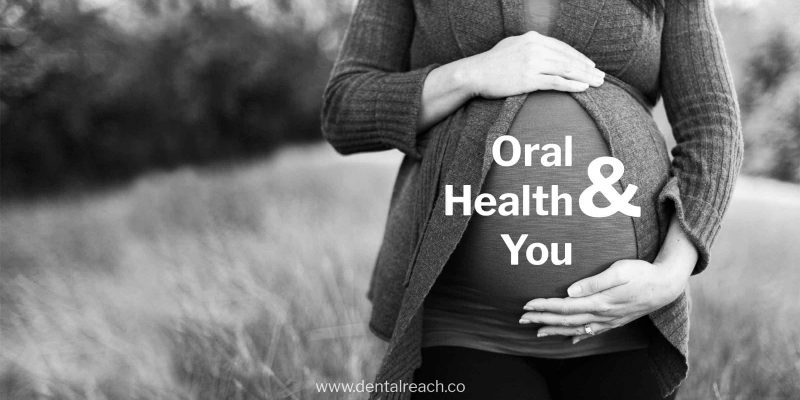Pregnancy, oral health and you.
Good oral care plays a vital role in our daily lives; it helps to keep our gums healthy and our teeth free from cavities. Our intake of food primarily is from our mouth and any nutritional deficiency is immediately seen in the oral cavity. Maintaining oral hygiene is important, as ratio of oral diseases is not constrained to a particular age group, it equally affects both men and women. From a health perspective, there are many differences between genders based on physiological characteristics. Oral health is no different and is affected by hormonal fluctuation during pregnancy, menstruation and menopause. Some of the common oral diseases occuring during pregnancy are gingivitis,periodontitis, bad breath, pregnancy tumours, dental caries, TMJ disorder, bruxism, dry mouth, etc.
- Gingivitis: Inflammation of gums is known as pregnancy gingivitis. During pregnancy nearly 65 to 75% of women are prone to gum conditions like infection or bleeding due to increased imbalance in hormones. This starts in the second month and can continue through the nine months of pregnancy. The gums become tender, swollen, red and bleeds when brushed as well as flossed. Also due to hormonal changes blood flow in the gum tissue is increased and is more sensitive to the bacteria of plaque, if it is left untreated this progresses to periodontists so rather than ignoring, seeking dental help and undergoing required treatment would be of great help.
- Periodontitis: It is the inflammation of the gums surrounding structures of teeth which progressively destroy ligaments, connective tissue, bone, etc. The cause of periodontitis during pregnancy is untreated gingivitis, the elevated prostaglandins, C reactive protein and spread of bacteria. The receptors of estrogen and progesterone found in the tissues of periodontium, increased levels affects the tissue response, to the vessels of gingiva, fibroblast and extracellular matrix. The symptoms of periodontitis are swollen gums, tenderness, bleeding gums, interproximal wide spaces between the teeth, gums pull away the teeth, receding gums, weakens and loosens the tooth. According to recent study of periodontology, the adverse effects of periodontitis is Premature Low Birth Weight babies. (PLBW). The treatment of periodontitis is scaling and root planing prevents the adverse outcome caused during pregnancy.
- Bad breath: Also known as halitosis, is a condition of foul breath. Food particles when contacts with bacteria produces sulphur compound and hence causes bad breath. Brushing regularly twice a day with fluoridated toothpaste is a good practise of oral hygiene and would relieve from bad breath.
- Pregnancy tumour: Is a condition of hyperplasia with inflammatory lesion seen in oral cavity. It prevails among 10 to 20 percent of women and known with other names as pregnancy epilude/granuloma pregnancy/pyogenic granuloma/lobular capillary haemangioma. It occurs after the first trimester of pregnancy caused by hormonal changes. It is asymptomatic, with well-defined, single or multiple raised nodules, size may vary from 0.5 to 2.5 cms. The symptoms are difficulty in swallowing and chewing, the may ulcerate and bleed. The recommended treatment is surgical lesion of the tumour, also advanced laser surgery .
- Dental caries: Tooth decays during pregnancy is due to saliva with high cariogenic bacteria, improper oral hygiene, vomiting and nutritional deficiencies. Consult your dentist and undergo suggested treatment procedures would help reduce the risks caused by tooth decay.
- TMJ disorder:TMJ refers to temporomandibular joint, The TMJ disorder is jaw pain. Swelling in TMJ is due to stress during pregnancy. The pressure around the temporomandibular joint results in swelling of face progressively lead to headache, uncomfortable movements and also discomfort while opening the jaw. If the pain persists for prolonged period of time, it’s better to consult a dentist.
- Bruxism: Is also known as teeth grinding. It occurs due to hormonal changes, physical and physiological stress, emotional worries during pregnancy and results in jaw pain, headache, teeth pain, insomnia, etc. Overall effects results the mother to be stress and tension with emotional pressure leads to affect the foetus growth. Certain medications like Ibuprofen (NSAIDs) non-steroidal anti-inflammatory drug and also muscle relaxants recommended by dental practitioner may help to get relief from teeth grinding.
- Dry mouth: Known as xerostomia, it occurs due to decreased saliva flow, dehydration, gestational diabetes, metabolic changes, prescribed drugs and its effects. The symptoms of dry mouth is metallic and bitter taste in mouth, dental caries, cracked lips, gingivitis, bad breath, difficulty in chewing and swallowing, burning sensation in the mouth, mouth sores, etc. It is advised to chew xylitol chewinggum and intake of sialogogues helps to increase salivary flow to a certain extent. In case of severity consult a dental practitioner at the earliest.
Tips for to be moms (Stages of pregnancy)
1. Before pregnancy
-
- Consult a dentist for regular check up in order to know about the status of your oral health.
- If any treatment is suggested, it is best advice to undergo and follow the regimen prescribed as per the dentist.
2. During first trimester
-
- Inform the dentist that you are pregnant.
- Frequently rinse your mouth out if suffering from morning sickness.
- In order to avoid morning sickness use bland toothpaste.
- Use small and soft bristles toothbrush in order to avoid vomiting.
- Never brush immediately after vomiting.
3. During second trimester
-
- Avoid of sugary snacks.
- It is good to have healthy diet with Vitamin C, B12 and Calcium supplements to build your teeth strong and healthy.
- If any pregnancy tumour is seen, consult a dentist immediately.
4. During Third Trimester
-
- Avoid undergoing dental procedures.
- Regularly brush and floss your teeth twice in a day.
- Schedule a dental appointment after the baby is born.
5. Postpartum nursing
-
- Consult your dentist soon after your delivery.
- X- ray and local anaesthetics are safe during breastfeeding.
- It is safe to postpone major dental procedure until this time.
Dental science is modernised and clear in its understanding that oral hygiene plays a vital role prior to as well as during pregnancy. During pregnancy, it is always good to follow awareness of knowledge gained about dental regimens. Although an effort of understanding is finally to keep and maintain good oral health status by hoping moms for growing foetus.
Also, checkout oral hygiene tips for children: Click here
Bonus: Download our monthly e-bulletin!Click here to get it
DISCLAIMER : “Views expressed above are the author’s own.”




















Comments